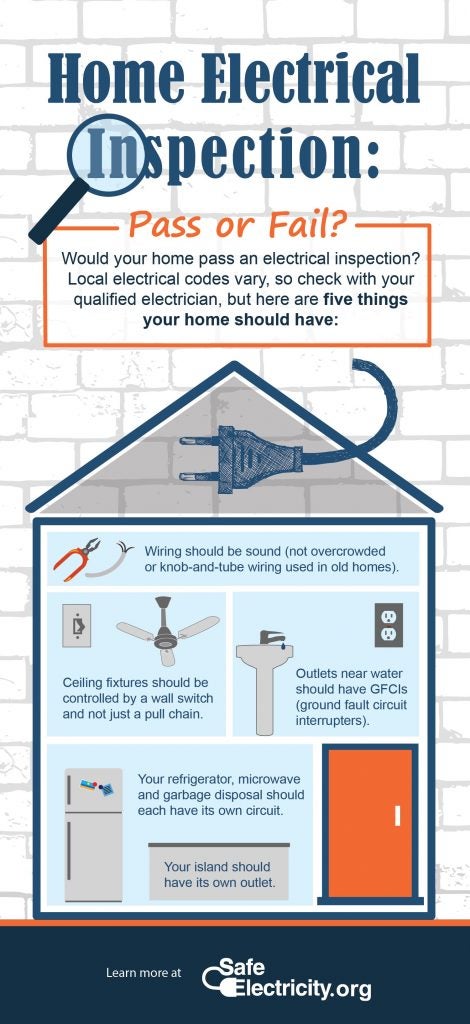
If you’re getting ready to sell your home or just wondering how electrically sound it is, there are some general guidelines out there to assess the condition of your home’s wiring and electrical bones. Although it varies depending on where you live, most local codes follow the National Electric Code (NEC).
The NEC is an industry-specific document that outlines required practices for all aspects of residential and commercial electrical installation.
Local code always wins out when there are variances, so be sure to check with a qualified electrician or local building department for specific code requirements.
Electrical malfunction is dangerous. U.S. fire departments respond to more than 45,000 home structure fires annually that involve electrical failure or malfunction. Home fires result in 420 deaths, 1,370 injuries and an annual $1.4 billion in direct property damage.
In general, here are some all-house guidelines that an inspector would look for. Remember they may or may not align with your local electrical code but they are NEC-mandated. If your home has any of the following defects, it may not pass an electrical safety inspection:
• Old knob-and-tube, along with BX cable wiring, common from 1880 to 1930.
• New lights installed into old wiring.
• Overcrowded wires producing excess heat or spliced wires that were illegally installed (they must be installed by an approved method).
• Broken or missing carbon monoxide detectors or smoke alarms.
• Non-insulated/non-contact-rated recessed lights that touch attic insulation, which is a fire hazard.
• Improper overcurrent protection, which means the breaker or fuse is too large for the wire rating.
• Improper grounding and bonding of electrical panels and devices.
Here are some other kitchen and bathroom specific things to consider:
• Does your electric range, cook top or oven have a dedicated 240-volt circuit?
• Does your microwave, refrigerator, and garbage disposal each have its own circuit?
• Are outlets GFCI (Ground Fault Circuit Interrupters)? GFCIs are designed to protect people from electric shock around water.
• Does your combination fan and light have its own 20-amp circuit?
• Do the light fixtures in the shower or tub area have a “lens” cover? Are they moisture resistant?
• Does each room have a wall switch installed beside the entry door?
• Are outlets installed no farther than 12 feet apart?
• Are ceiling fixtures controlled by a wall switch and not just a pull chain?
There are also hallway, staircase and garage code requirements, as well as those for the electrical service panel and wiring. It’s always a good idea to have an electrician inspect your home.
